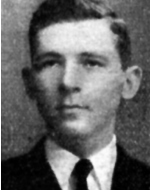Sokel, Isaiah (Otto)
Son of Fania and Yitzhak, was born on 15.5.1935 in Vienna, the capital of Austria, at the age of 10, immigrated to Israel with his family, who settled in Tel Aviv. After completing elementary school, he studied in a vocational high school. He devoted himself only to studies and to work and did not join any youth organization. In 1942 he “increased his age” and was accepted as a volunteer to the British Navy. When he was sent a request from the Jewish Agency to enlist in the British Army, he was already a veteran of the Navy. Due to his good character and devotion to his duties, he was sent to the rank of under-officer, despite his young age, which was rare for a Jew from Eretz Israel in the British Navy. At the end of the war, he was in charge of the naval warehouses in Eritrea. After his discharge from the army, he worked in his father’s workshop. During the War of Independence he was drafted into one of the battalions in the Givati Brigade, completed courses in sabotage and fortification, participated in all battles of his battalion, and as a veteran soldier raised the combat morale of his comrades. On a journey through Faluja to Gat, volunteers were asked to get out of the armored vehicles and remove the barrier of rocks from the road. He jumped first from the armored vehicle and under a cross-fire fire, he was promoted to the rank of lieutenant colonel, and was once more successful in collecting the wounded on the way to Nitzanim under a sniper’s barrage of fire. Against the Iraqi-Suweidan police (with all the heavy weapons of his platoon only one machine gun.) In the battles against the Egyptians he worked in the fortification of Negba and Beer Tuvia, and during the seventeen days of the Egyptian fire Negba was standing in front of the Egyptians attacking tanks and cannons. His men were in contact with the enemy, and the enemy suffered heavy losses on a five-day vacation during the first truce , Promised his parents to take them to the Negev and show them the fortifications, but they saw these fortifications only after his death, when he sent a request to transfer him to the navy, having experience in this service, but his commanders, who knew him as a soldier and a good fighter, did not support his request. The first was a conqueror of the Abadis regime, who bravely attacked the Egyptians with heavy weapons, took an Egyptian cannon named after him, suffered mortal wounds, and continued to fight until he lost consciousness.Yeshayahu was taken to the hospital where he died on Monday, (9.7.1948). He was laid to rest at the military cemetery in Rehovot.
